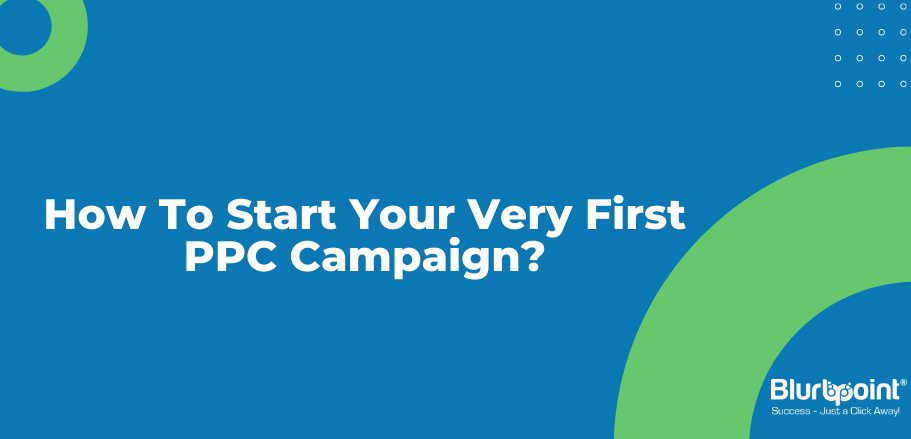GET A FREE CONSULTATION



Posted by Vivek Parikh
April 29, 2015
Are you looking forward to start your first PPC campaign and are discovering the ways to get all the things set up to ensure successful implementation, and efficiency? How to know what is the best approach to start a PPC campaign?
In order to gain maximum momentum, most advertisers are sure to opt for AdWords (Google) and adCenter (Yahoo/Bing). There are also some second-tier search engines as well and they are definitely worth divulging into. However, that depends on what your goals are. While we won’t be digging into specific PPC channels right now, there are some best practices that will apply to most of the search-based PPC advertising.
One common mistake that most advertisers make is that they jump into acquiring keywords without considering the need of planning. Before jumping into the ad platform or any other buttons that are pushed, there are three core planning factors that you will need to consider in order to know what kind of approach you will need for account set up.
1.Goals:
The goals that you lay down will help you in determining the networks, the type of the keywords, the ad copy that needs to be generated, and may more elements of your PPC campaign. You may have a branding goal or a sales goal, and the approach for both could be quite different. Thus, you need to identify the goals in order to define the strategy.
2.Budget:
Looking at the potential that the ad platforms provide, there could be no minimum budget. However, you have a budget to follow. You will need to divide the monthly budget into daily budget to determine how much you could afford to pay for the clicks on a daily basis. If you have a very low budget, it might not let you run the ad campaign quite effectively, as it will not fetch a considerable amount of clicks. If the budget is low, you will need to focus on the most relevant campaigns.
3.Relevance:
Considering the above, you will have to consider the keywords that are the most relevant to your business niche, and those that will fit into the budget. When you increase the budget, it will be appropriate to target searches that will broaden the reach, however they could be less relevant.
Keyword Research
Once you have done the basic planning, you could begin researching on the best keywords relevant for your campaign and then classify them into themes. You could better develop a structure for the account with the keyword themes. There will be many free and paid tools that will be available for keyword generation.
Select the core keywords that could be later expanded to offer more detail. For instance, you could start with “protein powders” as a core keyword, which could be later expanded into a long tail keyword like “affordable protein powder” or “healthy protein powder”
You should be very careful so that you don’t dump all the keywords into one or two of the broad themes. This will dilute the relevance of the keywords in the campaign, and it will get hard to show the appropriate ad copy.
Now you could create the account structure, as you have discovered the basic themes through keyword generation. The keyword will trigger the ads in the Ad Group, so you could customize the ad to be the most relevant to the searcher so they will certainly click on the ad.
In order to organize the information, you need to create campaigns or Ad Groups. It works like a file folder system. However, you need to define the budgets and target at the campaign level. Thus, all the Ad Group within the campaign will share that budget and sharing.
A new campaign should be created for any groups that have different theme, targeting, or have been allocated a separate budget.
Ads & Ad Groups
The two principles that will boost the effectiveness of your campaign are relevancy and action, and they should be on the top of your mind while the creation of the first Ad Group.
The keywords in your Ad Group should be relevant to each other and the ads. The page on which the ads will link should be equally relevant. Also, if you are inserting a strong call-to-action, you will increase the chances of getting higher CTRs. For more details on crafting a killer ad copy, you could see Killer PPC Ads: The Fundamentals.
Since keywords trigger the ads in all of the Ad Group, each ad should have the core or the theme keyword. Also, you will have to set up the display URL to have the core keyword as well.
Finally, ensure that you pick up the most relevant page for your landing page. Potential customers shouldn’t be only sent to the home page. In fact, there should be a dedicated landing page for each ad that you are creating for different purposes.
Measure and Tweak
Depending on the web analytics tools that you are using, you will need to make sure that you set up the campaign and associated landing pages in a manner that you could accurately measure the results. The very first day of the campaign should be watched closely and tested to make sure that all is working well.
Undoubtedly, you will find some spots while monitoring that will need to be changed. Expand the keyword list if necessary and include some more ad groups with relevant keywords. Keep a check on the conversion rates.
Final Thoughts
Setting up your PPC campaign with systematic planning could prove to be beneficial to a great extent. The above mentioned steps will guide you to ensure that it happens. You will come across numerious tools and tips while working on your PPC campaigns. Remember to plat it smart, test it out, and also make sure that it works right for you.